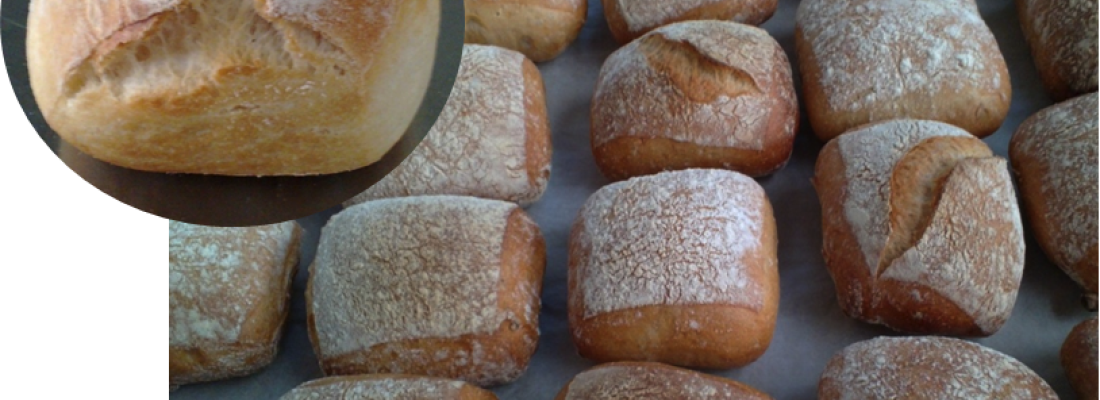Food, Global Health Reading time 1 min
Vitamin B4 as a salt substitute in bread
Published on 18 February 2019

Bread is still a flagship product in the everyday diet of the French. Unfortunately, it also accounts for a large share of daily salt intake. Since 2002, the French Agency for Food, Environmental and Occupational Health & Safety (ANSES) has been recommending that the amount of salt used to make bread dough should not exceed 18 g per kilo of flour. However, salt plays an important technological role in bread-making and contributes to improving the organoleptic qualities of the finished product. It is therefore difficult to simply reduce the salt content. Another obstacle to producing reduced-salt bread is the love affair between French people and their bread. The question of the social acceptability of changing the recipe is thus posed.
Our work therefore concerned a double innovation
This project focused on finding a substitute that could achieve reduced-salt bread acceptable to both industry and consumers. In the literature, choline chloride (or vitamin B4) is described as an essential nutrient that might be capable of acting as a partial substitute for salt and a flavour enhancer. Our work therefore concerned a double innovation that involved both reducing the level of a manufacturing agent (NaCl) and adding a substitute, choline (or vitamin B4).
The positive effect of choline was demonstrated at a technological level (texture, staling rate). In sensory terms, choline enabled a moderate increase in saltiness perception in reduced-salt bread.
With respect to acceptability, the nutritional qualities of this bread were attractive to consumers focused on health in their dietary choices and those with strong views on educating others to reduce their salt intake. On the other hand, among consumers strongly attached to the traditional values associated with bread, its “medicalisation” constituted a major obstacle to its consumption.
Choline is a pertinent alternative to salt, combining both technological and sensory advantages, but its success will depend on its acceptability to consumers.
Partners: this study was carried out in the context of the PhD project implemented by Doina Crucéan (Research Unit on Biopolymers, Interactions and Assemblies; BIA), in collaboration with the CNRS Research Unit on Process Engineering for the Environment and Food (GEPEA) and Audencia in Nantes.
Publication: Doina Crucean, Gervaise Debucquet, Cécile Rannou, Alain Le-Bail and Patricia Le-Bail “Vitamin B4 as a salt substitute in bread: A challenging and successful new strategy. Sensory perception and acceptability by French consumers” Appetite. DOI: https://doi.org/10.1016/j.appet.2018.12.020
